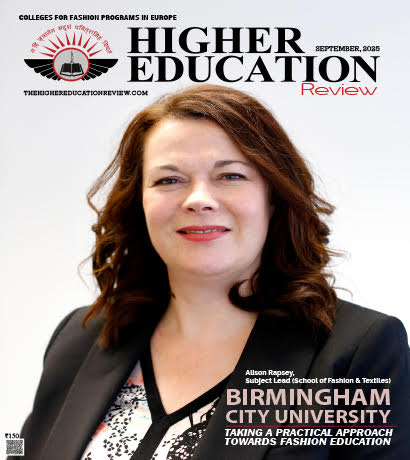Authenticity vs. Academicism: How to Find a Balance Between Exam Requirements and Living Language
 How can we help students pass the IELTS and TOEFL successfully without sacrificing their communicative skills and self-confidence? Aleksandra Kolganova, an Expert in English language education and adult pronunciation pedagogy, author of AI supported, innovative language learning programs, shares her experience and discusses how to find a balance between exam requirements and real-life language.
How can we help students pass the IELTS and TOEFL successfully without sacrificing their communicative skills and self-confidence? Aleksandra Kolganova, an Expert in English language education and adult pronunciation pedagogy, author of AI supported, innovative language learning programs, shares her experience and discusses how to find a balance between exam requirements and real-life language.
— Aleksandra, the problem of preparing for standardized exams like IELTS and TOEFL is very pressing. Many educators complain that they have to 'drill' students on the format, sacrificing the development of real communicative skills. How do you address this issue in your work?
— This is indeed a complex issue. On the one hand, we need to help students master exam strategies, teach them to understand the format, allocate their time properly, etc. On the other hand, we must not turn preparation into mechanical memorization, as this leads to a common problem where students cannot express their thoughts naturally, using appropriate vocabulary and grammatical structures, which in turn inevitably results in losing points on exams. It is important for students to feel confident in using the language, to be able to express their thoughts freely and correctly, and to understand their interlocutor.
I am trying to find a balance between these two aspects. We do not just do practice tests and write essays according to a template. We analyze authentic materials such as articles from academic journals, podcasts, and TED Talks. This helps students not only master the vocabulary and grammar necessary for the exam but also see how the language is used in real life.
— Can you provide examples of using authentic materials in your practice?
— Of course. For example, when preparing for writing task 1 (describing visual data) in IELTS, we take real articles with descriptions of statistical data written by native speakers, and analyze their structure, vocabulary, and constructions. Students learn to identify key elements and express their thoughts coherently and logically.
In the speaking part, we analyze recordings of oral presentations on various topics, focusing on pronunciation, intonation, the use of phrasal verbs and idioms. Students work on imitating native speakers, refining their pronunciation, broadening their vocabulary, and — most importantly — developing logical and convincing arguments to challenging exam questions.
I pay special attention to working on pronunciation, as it is often underestimated by students and teachers, and mistakes lead to unsatisfactory results on exams. For example, we analyze techniques for fluent speech — I explain what reduction and sound linking are and how they affect listening comprehension. We practice recognizing these phenomena in native speakers' speech and applying them in our own.
— Many students experience a lot of stress before exams. How do you help them cope with anxiety and boost their confidence?
— The psychological aspect of exam preparation is very important. I try to create an atmosphere of support and trust in my classes. It is important for students to feel comfortable, to be able to ask questions, and not to be afraid of making mistakes.
A mandatory element of preparation are the mock exams. They help students get accustomed to the format, feel more confident in their abilities, and learn to manage their time. After each mock exam, we conduct a detailed analysis of mistakes, examining strengths and weaknesses.
We also discuss focus techniques: how to redirect attention from negative thoughts to positive experiences, how to notice progress in learning and even use small victories as a resource. This approach reduces anxiety levels and helps students approach the exam not with a sense of threat, but with confidence in their own abilities.
— How do you think the knowledge and skills obtained while preparing for the IELTS and TOEFL are useful for further studies in university or for working abroad?
— Since these exams are primarily intended for relocation, work, and study abroad, I am confident that preparing for these exams can be very beneficial if approached correctly. Mastering academic writing skills, expanding vocabulary, improving grammar and pronunciation – all of this will be useful for students in their further studies and work, where they have to deal with vast amounts of texts and information, analyze them quickly, write brief reports, etc.
But the most important thing is the development of communication skills, the ability to express one's thoughts freely and correctly, to understand the interlocutor, and to conduct a discussion clearly and with arguments. These skills are invaluable in any field of activity.
— Aleksandra , your original educational programs are very popular. Tell us more about them.
— Yes, I have developed several courses that help students prepare for exams effectively and improve their language skills.
For example, the "IELTS Speaking Course" is specifically designed for intensive preparation for the speaking part of the exam. It includes the use of authentic materials, practice of exam strategies, and a large number of practical sessions.
I also developed a yearly preparatory course for the Unified State Exam, which covers all sections of the exam and helps high school students prepare systematically for successful passing.
And, of course, my most popular course is 'FilmFluent', which is based on learning English through modern films and series. This course helps students not only improve their language skills but also boost their motivation to learn, and get acquainted with the culture and traditions of English-speaking countries.

